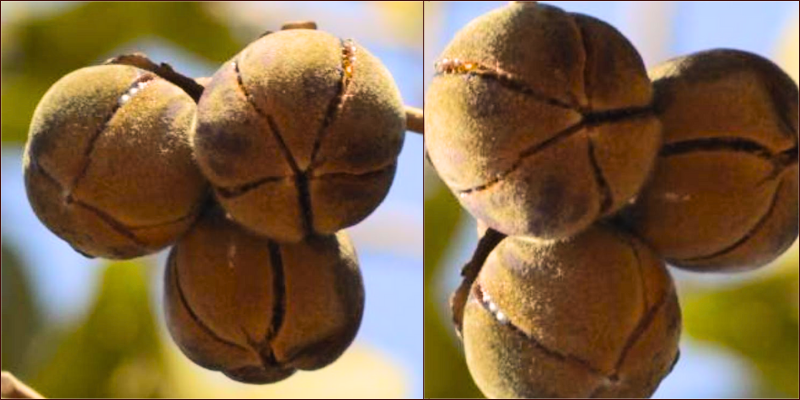Mutohwe fruit (Snot Apples)
Dec 05, 2024
Yep, “snot apples.” Sounds…well, less than appetising, right? You might even chuckle at the name - we don’t blame you. I mean who came up with that, anyway?? Don’t let the name fool you though. To the Nambya families of Hwange and many others across Zimbabwe, these fruits are far more than their quirky title. They are part of life - rooted in stories, traditions and a deep connection to the land. Known locally as mutohwe in Shona or uxakuxaku in Ndebele (a tongue-twister best pronounced after several visits to Zimbabwe, lol), this tree plays countless roles in every household here.
The mutohwe tree is a giver in every sense. Its bark is a natural remedy cupboard, ground into powders or boiled into teas to soothe tummy troubles or disinfect scrapes. Skilled Nambya artisans transform it into ropes, baskets and ties for firewood, reminding us that resourcefulness is an art in itself. As for the leaves? They’re versatile too - used in remedies, brewed into teas for restless nights, or handed to kids as “plates” for pretend mud cakes. It’s a delightful blend of practicality and play, proving that the mutohwe tree doesn’t just nourish; it inspires creativity.
And then there’s the star of the show: the fruit. Yes, it’s gooey and yes, it’s sticky, but in Zimbabwe, that’s all part of the charm. Childhood memories come rushing back - sitting under the tree after a game of football or a mud-cake baking session, hands sticky with pulp as laughter and made-up stories filled the air. Cherished memories indeed. What truly sticks with you no pun intended, is the connection the fruit brings - whether it’s a grandmother showing her grandchildren how to prepare it or a neighbourly exchange of ripe fruit during harvest season. It’s not just about nourishment; it’s about the bonds it strengthens, the healing it brings, the lessons it imparts and the gratitude it inspires for the abundance surrounding us.
Mutohwe tree, in its own modest way, reflects life itself… sometimes sticky, often messy, but always full of sweetness if you take the time to appreciate it. Whether enjoyed as a snack, used in traditional remedies or simply marveled at, it leaves an imprint far greater than its size. At its core, it represents something more profound - it’s a member of the family, one that gives without asking for much in return.
So, if you do come across “snot apples,” have a chuckle (we all do) then after that, think of the warm family moments, the resourceful solutions and the simple joys that this humble tree brings to the people of Zimbabwe. Remember us.
At Gwango, we’re proud to celebrate the traditions and treasures of this land - one mutohwe at a time.